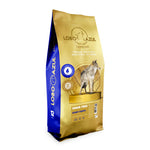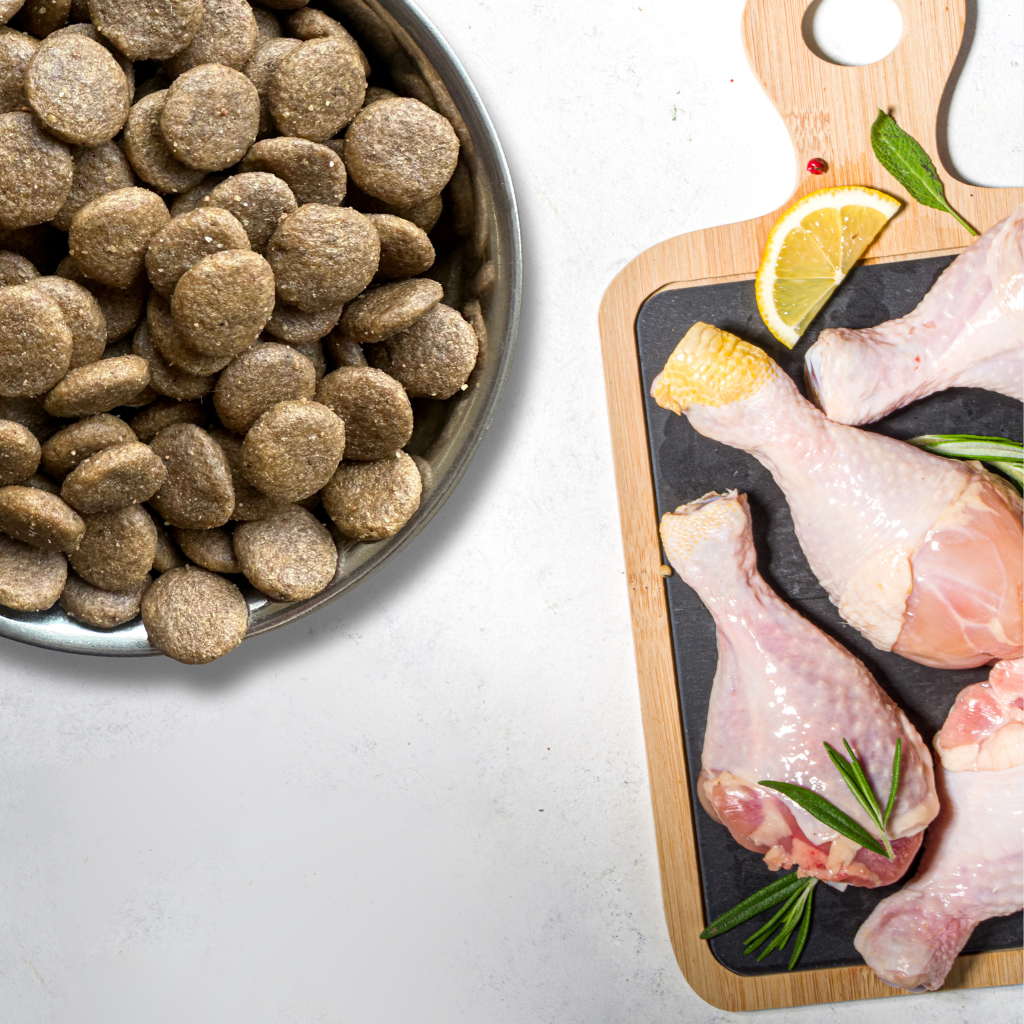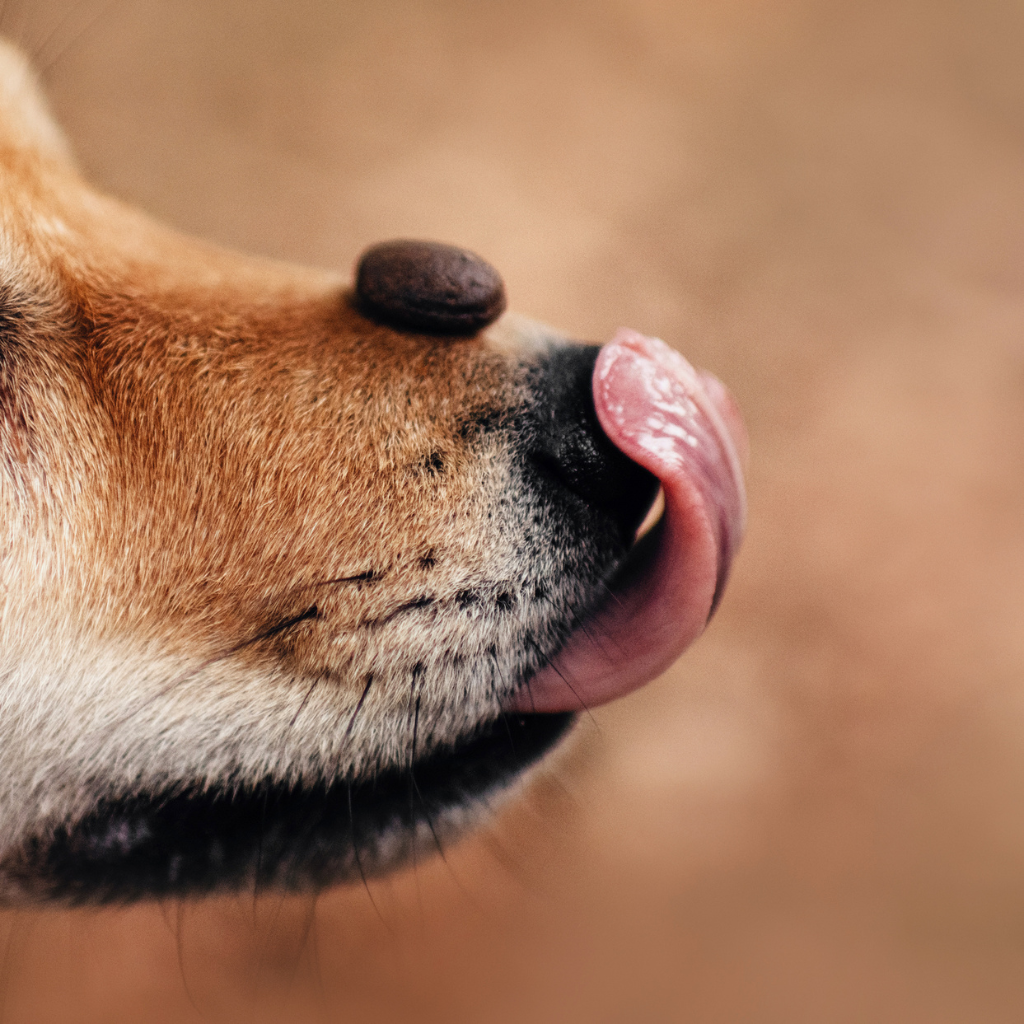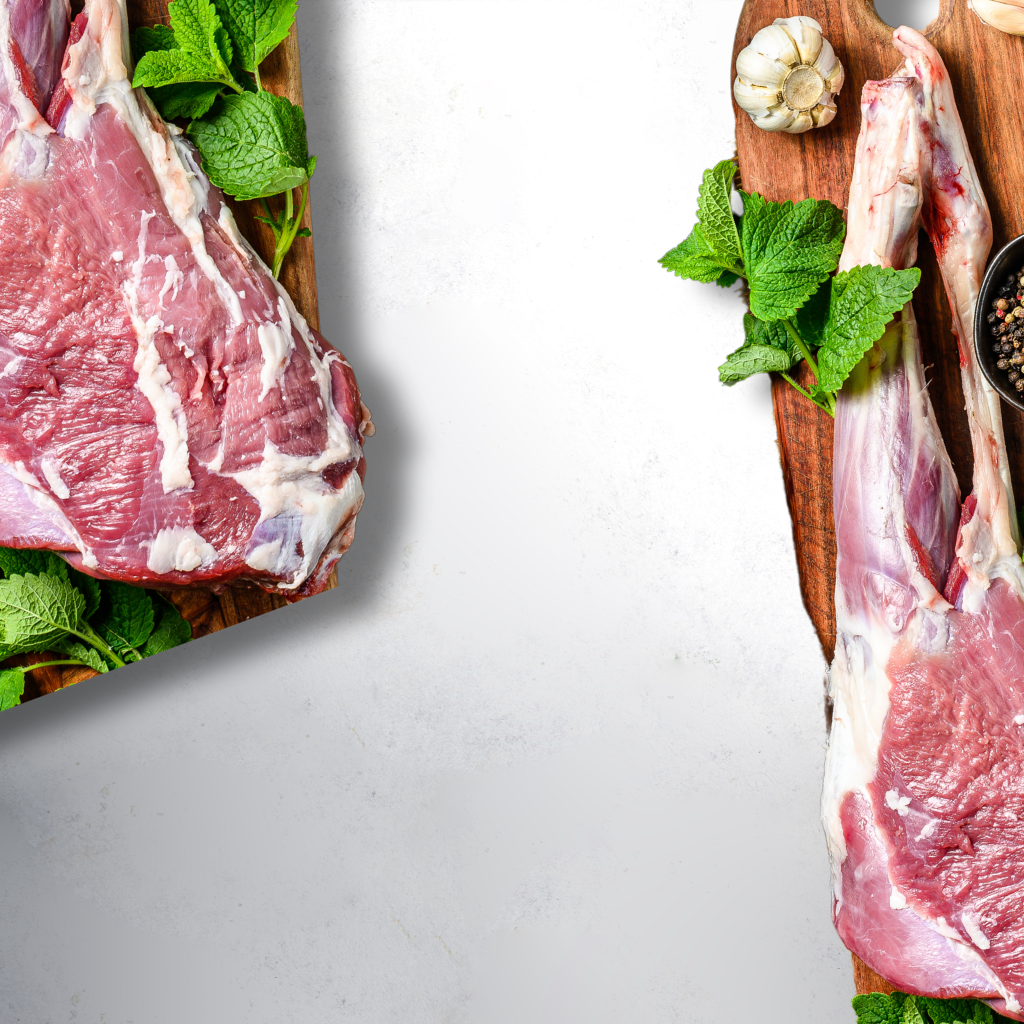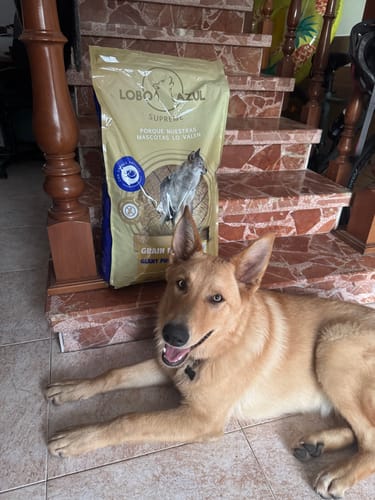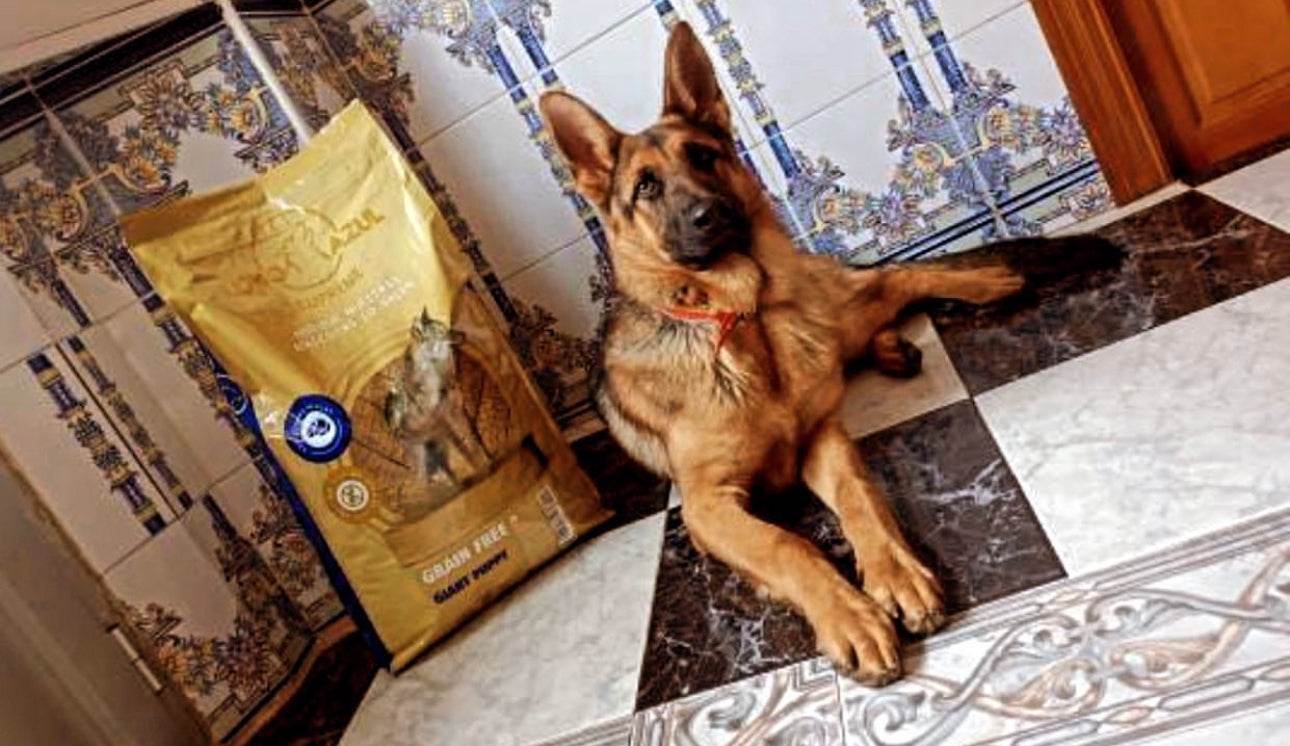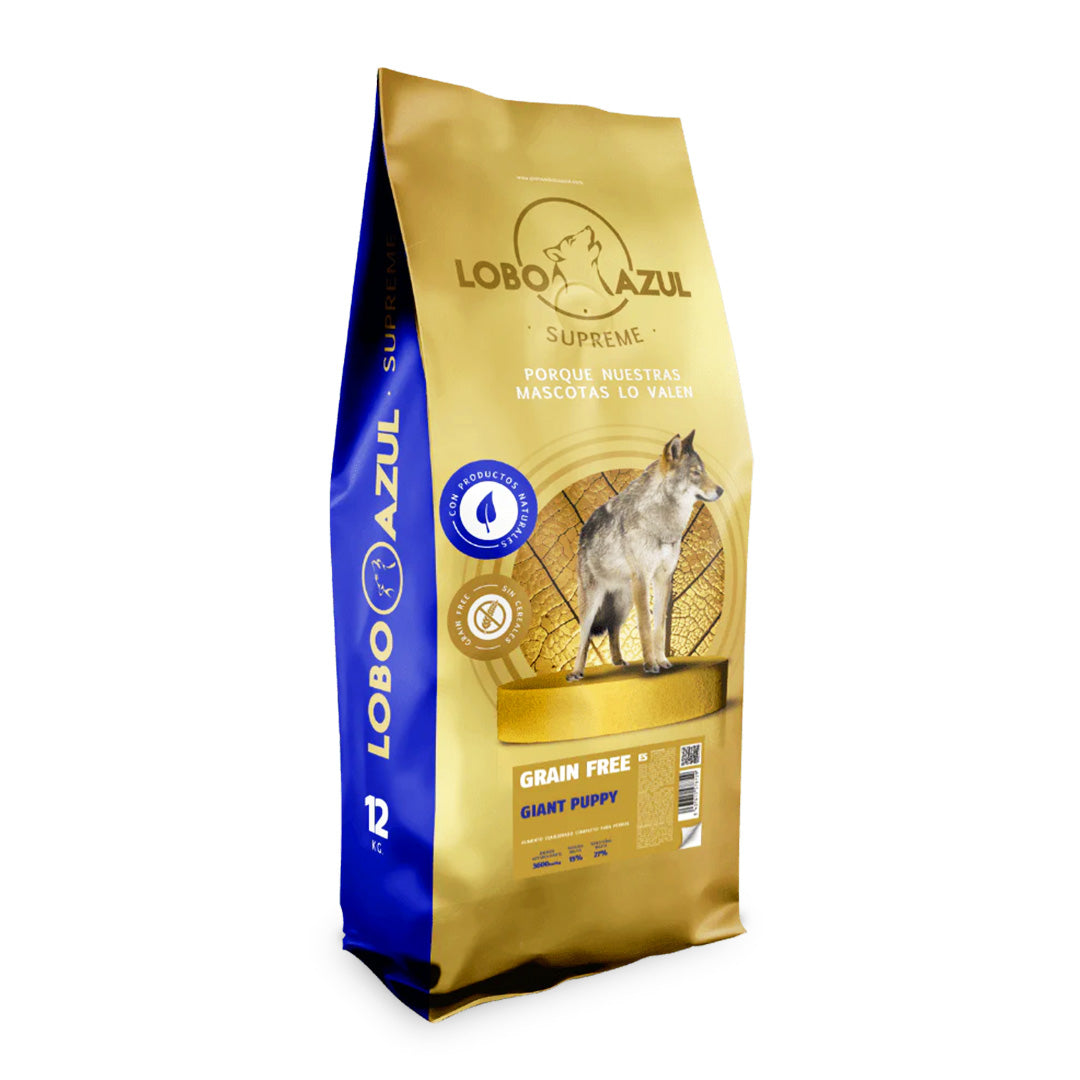
Grain Free Giant Puppy
65,50€
Precio unitario 5,46€ por kgPago a plazos disponible y múltiples opciones de pagos seguras.
Entrega estimada entre 18 Diciembre y 19 Diciembre.
Pedir antes de
Envíos a España y Portugal (Península) Pedidos realizados antes de las 14:00h (Lunes a Jueves) o 13:00h (Viernes), se envían el mismo día. Elige tu entrega: Punto PickUp, Correos Express, CTT Express, SEUR o GLS. Entrega en 24/48h laborables.
65,50€
Precio unitario 5,46€ por kgTabla ración diaria
Administrar el alimento en cantidad variable, dependiendo del peso del animal, 1 vez al día. Asegúrese de que el animal dispone siempre de agua limpia y fresca. Si realiza algún cambio de alimentación que sea paulatino, a lo largo de 4 o 5 días, para evitar la aparición de desórdenes intestinales.
¿Por qué este producto?
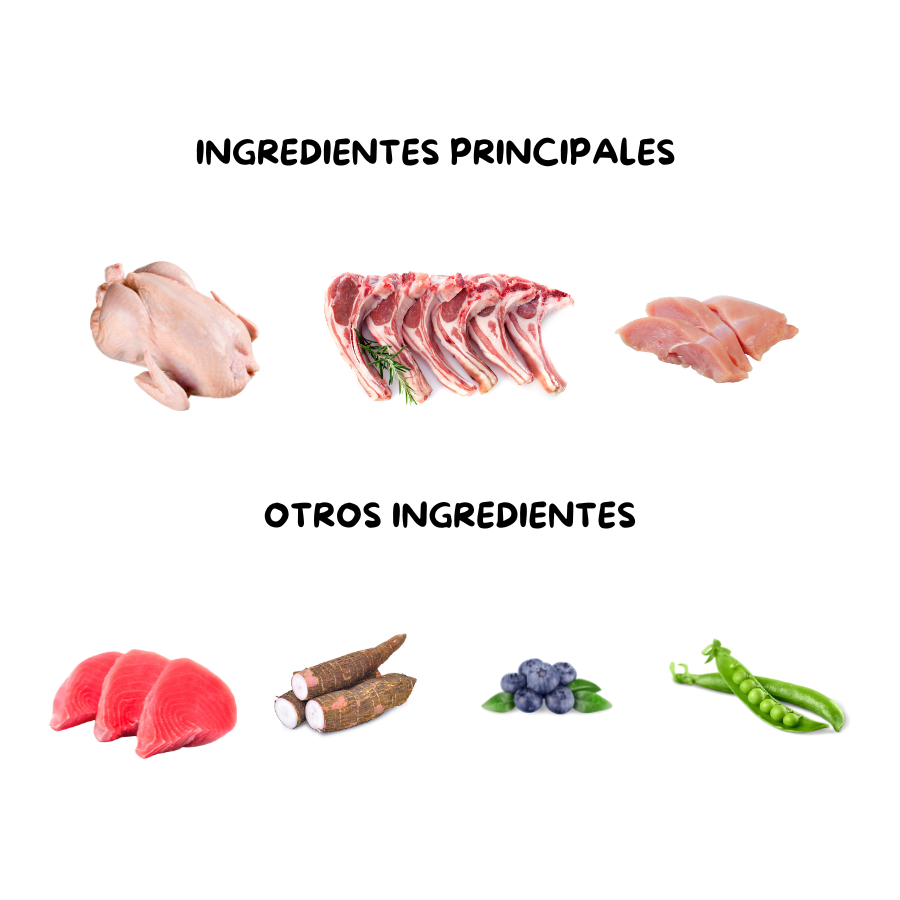
¿QUÉ LLEVA ESTE PRODUCTO?
Ingredientes 100% natural
Carnes y pescados
- Fuente magra de proteína de alta calidad
- Rico en Omega-3 (EPA y DHA):
Fundamental para el desarrollo del cerebro, sistema nervioso y visión del cachorro
Verduras y legumbres
- Buena fuente de fibra, proteínas vegetales, vitaminas (A, B, C, K) y minerales
- Ayuda a la digestión y el control de los niveles del azúcar en sangre
Frutas y raíces
- Rico en antioxidantes naturales
- Ayuda a prevenir infecciones urinarias y refuerza el sistema inmunológico.

